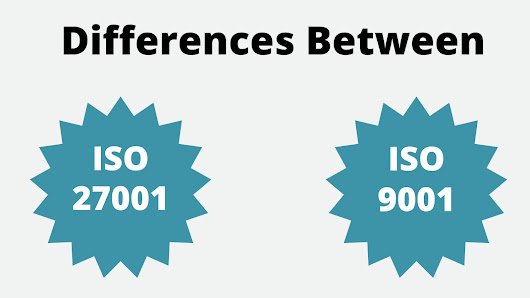Types of ISO certification in India
ISO (International Organization for Standardization), as the name implies, is an independent international organization that develops international standards such as ISO9001 and ISO14001 but is not involved in ISO certification and does not issue ISO certification. An external certification body in India carries out the ISO certification process. In this article, we will take a closer look at the ISO certification process.
Purpose of ISO certification
The goal of ISO
certification is to drive improved standardization of the organization's
technology.
Benefits of ISO certification
- International
credibility: ISO certification plays an important role in helping
organizations build credibility in their overseas operations.
- Customer Satisfaction:
ISO standards are designed to encourage organizations to better serve
their customers while at the same time improving customer satisfaction.
- Governmental Bids: To bid on government contracts, ISO certification
is required.
- Organization Efficiency: Obtaining ISO Certification
improves the functional effectiveness of organizations. The ISO
Certification Agency can help in the development of SOPs (Standard
Operating Procedures) and work procedures. ISO helps an organization
manage its resources effectively.
- Product Quality: Obtaining ISO Certification ensures that the
product meets international standards, lowering the chance of product
order rejections caused by defective products.
- Marketability: ISO certification increases corporate reputation and directly aids in marketing.
What do you mean by
Standards?
This is basically universal requirements for products,
services, and systems that guarantee quality, safety, and efficiency. They play
an important role in enabling trade and fostering trust.
22521 International Standards have been published by ISO to date, encompassing practically every area from technology to food safety, service, agriculture, and healthcare.
Choosing a type of ISO
Certification in India
First and foremost, the business owner must choose which
form of ISO certification is required. There are a variety of ISO certifications in India available, including the ones listed below:
ISO 9001
This is a widely accepted method for developing,
implementing, and maintaining a 'Quality Management System' for any business.
It can be used in any industry, regardless of size or capital. The most recent
revision of the standard was issued in 2015, and it has been followed since
then.
ISO 14001
This one is a step-by-step approach to implementing an
environmental management system (EMS). Policies, processes, plans, practices,
and records define the rules that govern how your business interacts with the
environment. The ISO 14001 criteria give a framework and guidance for
developing an Environmental Management System
(EMS) for any firm. The world now follows the 2015 standard.
OHSAS 18001
This standard outlines the steps that must be taken to put
in place an occupational health and safety management system. It consists of
policies, procedures, plans, procedures, and records that specify the health
and safety rules. The 2007 criteria are still in place and are being
implemented by all industries.
ISO 45001
This standard outlines the steps that must be taken to put
in place an occupational health and safety management system. Policies,
methods, plans, practices, hazard identification and risk assessment, as well
as records, determine the health and safety rules. Many sectors have adopted
this standard, which was issued in 2018.
ISO 27001
ISO 27001 is an information security standard which was last
revised in 2013. It describes a management system for bringing information
security under management control and includes specific standards. Following a
successful audit, organizations that meet the standards may be certified by a
recognized certification authority.
ISO 22000
This standard specifies requirements for a food safety
management system (FSMS) that enables an organization participating in the food
chain, whether directly or indirectly, to plan, implement, operate, maintain,
and update an FSMS that provides safe products and services in line with their
intended use. Many sectors have adopted this standard, which was issued in 2018.
ISO 50001
It is a voluntary international standard that offers
companies with a framework for controlling and improving energy-related
performance that is internationally recognized. This standard covers energy use
and consumption measurement, documentation, and reporting. It also covers
energy-consuming equipment design and obtaining processes, as well as other
elements that affect an organization's ability to monitor and control energy
efficiency. The exclusive update occurred in 2011.
ISO 20000
This standard aims to make IT service management more
efficient in any sector or work process. This is a crucial requirement. Almost
every industry, in particular, is relying on information technology. It impacts how you interact, collaborate, and
work. It's a requirement of doing business.
ISO 31000
This is a risk management programme that outlines the
foundations and arrangements for implementing safety and managing risks in
accordance with an internationally recognized standard. ISO 31000 is essential
for running a successful business, as it serves as a guide to assist firms
achieve their goals, identify opportunities and hazards, and allocate resources
for risk management.


Comments
Post a Comment